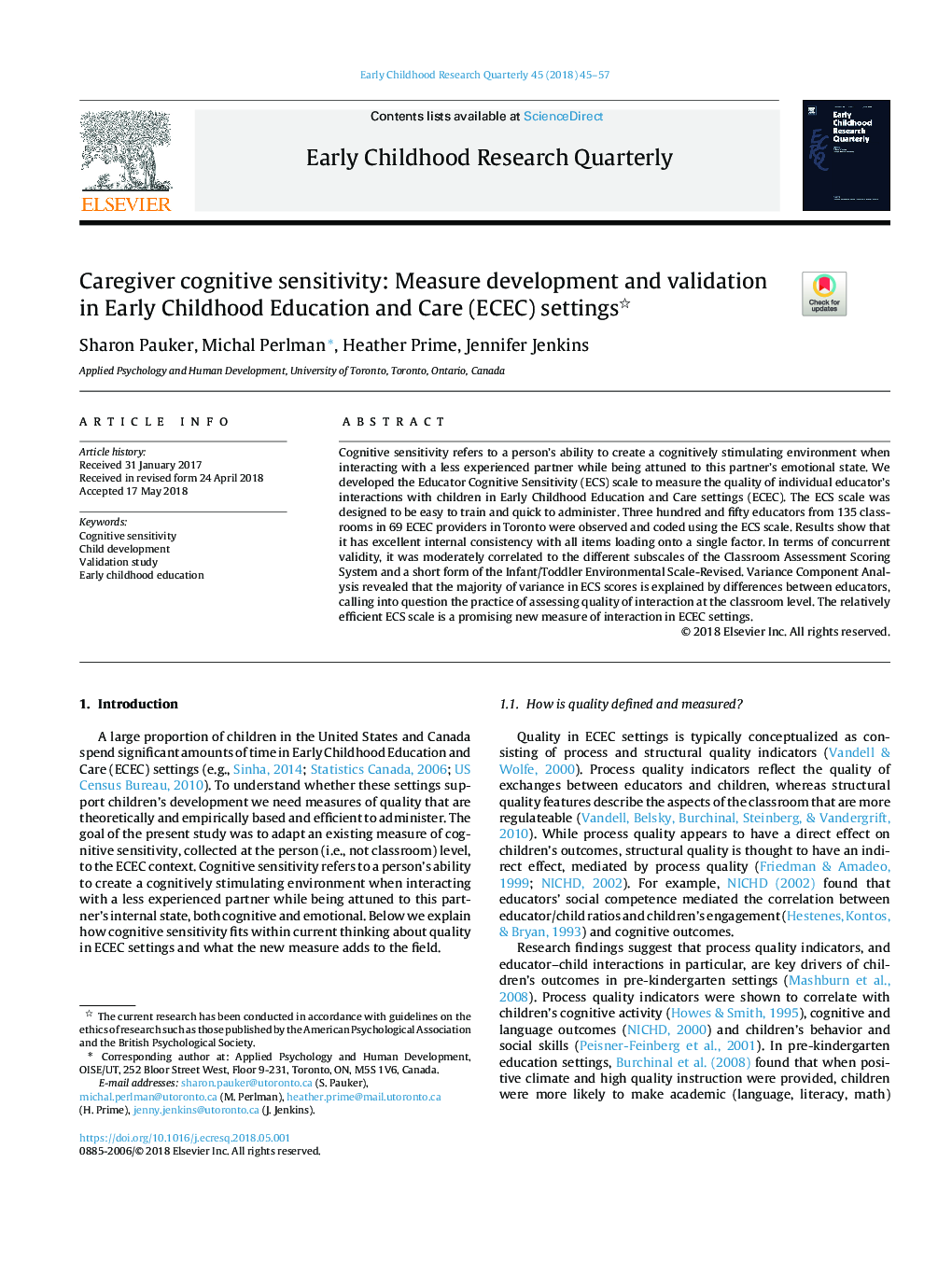| Article ID | Journal | Published Year | Pages | File Type |
|---|---|---|---|---|
| 6840468 | Early Childhood Research Quarterly | 2018 | 13 Pages |
Abstract
Cognitive sensitivity refers to a person's ability to create a cognitively stimulating environment when interacting with a less experienced partner while being attuned to this partner's emotional state. We developed the Educator Cognitive Sensitivity (ECS) scale to measure the quality of individual educator's interactions with children in Early Childhood Education and Care settings (ECEC). The ECS scale was designed to be easy to train and quick to administer. Three hundred and fifty educators from 135 classrooms in 69 ECEC providers in Toronto were observed and coded using the ECS scale. Results show that it has excellent internal consistency with all items loading onto a single factor. In terms of concurrent validity, it was moderately correlated to the different subscales of the Classroom Assessment Scoring System and a short form of the Infant/Toddler Environmental Scale-Revised. Variance Component Analysis revealed that the majority of variance in ECS scores is explained by differences between educators, calling into question the practice of assessing quality of interaction at the classroom level. The relatively efficient ECS scale is a promising new measure of interaction in ECEC settings.
Related Topics
Social Sciences and Humanities
Psychology
Applied Psychology
Authors
Sharon Pauker, Michal Perlman, Heather Prime, Jennifer Jenkins,
